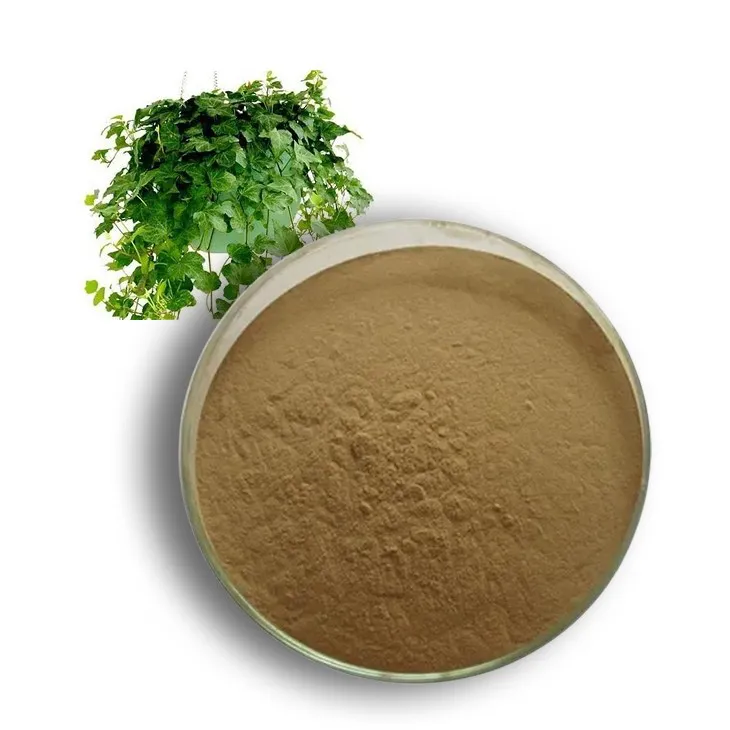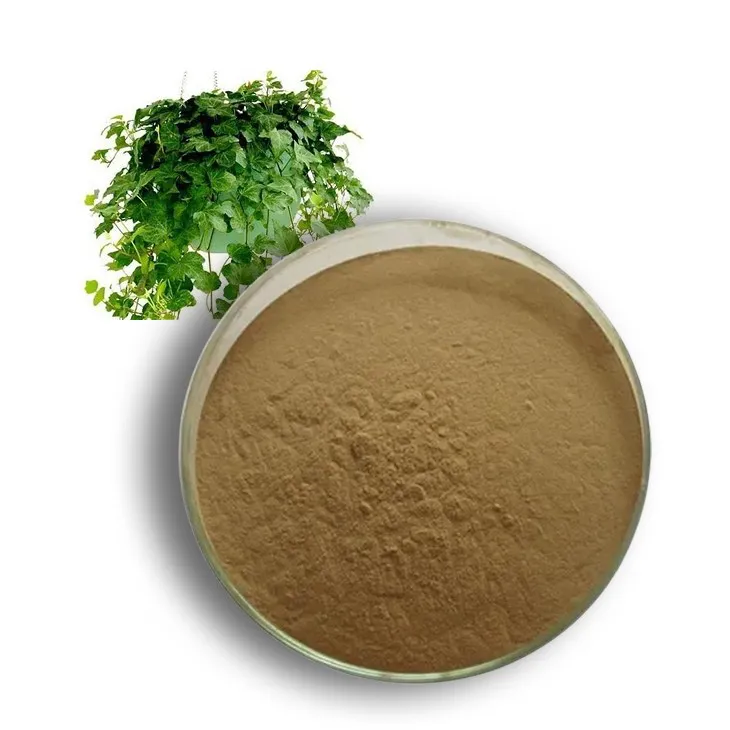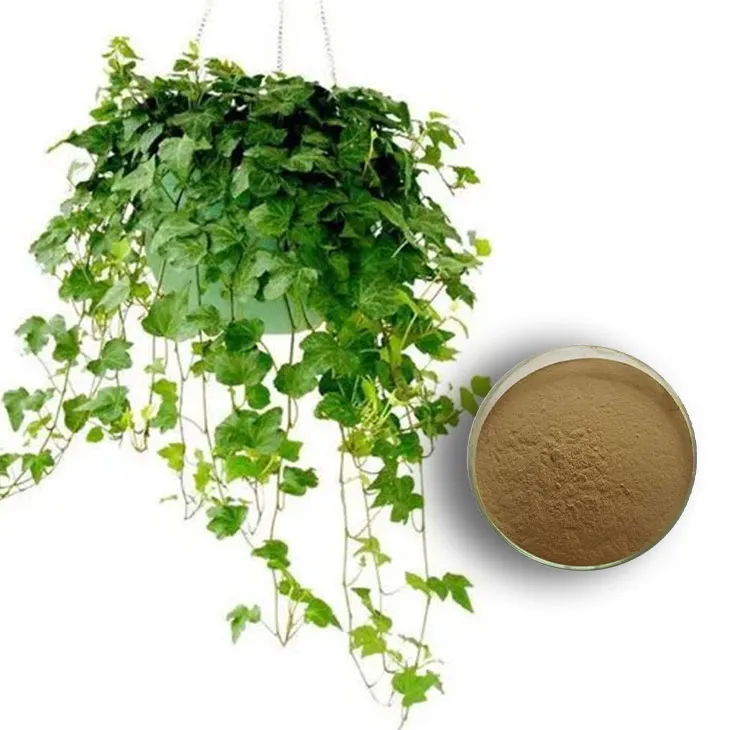- 0086-571-85302990
- sales@greenskybio.com
Ivy Extract: What Are the Benefits and How to Take It?
2024-11-13

Introduction
Ivy Extract has been a subject of interest in the field of natural remedies and alternative medicine. Derived from the ivy plant, it is believed to possess certain properties that can contribute to various aspects of health. This article will explore the potential benefits of Ivy Extract and provide guidance on how to take it safely and effectively.

Benefits of Ivy Extract
Respiratory Health
One of the most well - known benefits of ivy extract is its positive impact on respiratory health. It has been traditionally used to relieve symptoms associated with respiratory conditions such as coughs, bronchitis, and asthma.
The extract may help to soothe the airways by reducing inflammation. Inflammatory processes in the respiratory tract can lead to narrowing of the airways and difficulty in breathing. Ivy extract contains compounds that may act as anti - inflammatories, thereby alleviating these symptoms.
For example, in cases of chronic bronchitis, where there is persistent inflammation of the bronchial tubes, ivy extract may help to reduce mucus production and coughing. This can lead to improved breathing and a reduction in the discomfort associated with the condition.
Skin Health
Ivy extract also shows promise in promoting skin health. It has antioxidant properties, which means it can help to protect the skin from damage caused by free radicals.
Free radicals are unstable molecules that can cause oxidative stress in the skin. This can lead to premature aging, wrinkles, and a dull complexion. By neutralizing these free radicals, ivy extract may contribute to maintaining a more youthful and healthy - looking skin.
Furthermore, ivy extract may have anti - microbial properties. This can be beneficial in treating skin infections or preventing them. For instance, it may be used in topical formulations to help combat acne - causing bacteria, reducing the occurrence of breakouts and promoting clearer skin.
Digestive Support
When it comes to digestive health, ivy extract may play a role as well. It could potentially help in soothing the digestive tract.
In some cases, it may be used to relieve symptoms such as indigestion, bloating, and abdominal discomfort. The extract may have a calming effect on the muscles of the digestive system, promoting normal peristalsis (the movement of food through the digestive tract).
However, more research is needed to fully understand the mechanisms by which ivy extract supports digestive health and to determine its effectiveness in treating specific digestive disorders.

How to Take Ivy Extract
Forms of Ivy Extract
Ivy extract is available in various forms, each with its own method of consumption:
- Tinctures: Tinctures are liquid extracts usually made by soaking the ivy plant in alcohol or a mixture of alcohol and water. To take a tincture, a few drops are typically placed under the tongue and held there for a short period before swallowing. This allows for direct absorption into the bloodstream through the mucous membranes in the mouth. The recommended dosage may vary depending on the concentration of the tincture and the specific product, but generally, it is in the range of 1 - 5 drops, 2 - 3 times a day.
- Capsules: Capsules are a convenient way to take ivy extract. They contain a measured amount of the extract in a powdered or dried form. Capsules are usually swallowed whole with a glass of water. The dosage instructions on the product label should be followed carefully. Most commonly, the recommended dosage for capsules is 1 - 2 capsules per day, but this can vary.
- Teas: Ivy tea can be made by steeping dried ivy leaves in hot water. To make the tea, take about 1 - 2 teaspoons of dried ivy leaves and pour 8 - 10 ounces of boiling water over them. Let it steep for 5 - 10 minutes. The tea can then be strained and consumed. However, it should be noted that ivy tea may have a bitter taste. It can be sweetened with a small amount of honey if desired. Drinking 1 - 2 cups of ivy tea per day may be beneficial, but again, this depends on individual tolerance and the specific situation.
Precautions and Considerations
Before taking ivy extract, there are several important precautions and considerations:
- Allergies: Some people may be allergic to ivy plants. If you have a known allergy to ivy or related plants, it is crucial to avoid taking ivy extract. Symptoms of an allergic reaction may include skin rashes, itching, swelling, or difficulty breathing.
- Pregnancy and Breastfeeding: There is limited research on the safety of ivy extract during pregnancy and breastfeeding. It is advisable for pregnant and breastfeeding women to consult their healthcare providers before using any form of ivy extract to ensure the safety of themselves and their babies.
- Interactions with Medications: Ivy extract may interact with certain medications. For example, it may interact with blood - thinning medications, as some of the compounds in ivy extract may have anti - coagulant properties. If you are taking any medications, it is essential to inform your doctor before starting ivy extract to avoid potential adverse interactions.
- Dosage: It is important to follow the recommended dosage instructions provided with the product. Taking too much ivy extract can lead to adverse effects such as nausea, vomiting, or diarrhea. Start with the lowest recommended dose and gradually increase if necessary, while closely monitoring for any side effects.

Conclusion
Ivy extract has potential benefits for respiratory health, skin health, and digestive support. However, it is important to approach its use with caution. Understanding the different forms of ivy extract and how to take them correctly, as well as being aware of the precautions and considerations, is crucial for those interested in exploring the potential of this natural extract. Always consult a healthcare professional if you have any doubts or pre - existing health conditions before incorporating ivy extract into your health regimen.
FAQ:
What is ivy extract?
Ivy extract is a substance derived from the ivy plant. It contains various compounds that are believed to have certain effects on health. It has been studied for its potential pharmacological properties.
What are the main benefits of ivy extract?
One of the main benefits may be related to respiratory health. It is sometimes used to help with coughs and bronchial problems as it may have expectorant and bronchodilatory effects. Additionally, it may have anti - inflammatory properties which could be beneficial for skin conditions or joint inflammation in some cases. However, more research is still needed to fully confirm these potential benefits.
Are there any side effects of taking ivy extract?
Yes, there can be side effects. Ivy extract may cause irritation in the digestive tract, such as nausea, vomiting or diarrhea in some people. In higher doses or in those with sensitivities, it may also cause allergic reactions. Pregnant and breastfeeding women should avoid using ivy extract as its safety in these situations has not been established.
How should ivy extract be taken?
Ivy extract can be taken in different forms. It is available as capsules, tablets or in liquid form. When taking it in capsule or tablet form, it should be swallowed with a full glass of water. If it is a liquid extract, it should be measured carefully according to the instructions. The dosage usually depends on the specific product and the condition being treated, but it is important to follow the recommended dosage on the product label.
Can anyone take ivy extract?
No, not everyone can take ivy extract. As mentioned before, pregnant and breastfeeding women should not take it. Also, people with certain allergies, especially to plants in the ivy family, should avoid it. Those with pre - existing medical conditions such as liver or kidney problems should consult a doctor before taking ivy extract as it may interact with medications or exacerbate their condition.
Related literature
- The Pharmacological Properties of Ivy Extract: A Comprehensive Review"
- "Ivy Extract in Respiratory Health: Clinical Evidence and Mechanisms"
- "Safety Considerations of Ivy Extract Consumption: A Meta - Analysis"
- ▶ Hesperidin
- ▶ citrus bioflavonoids
- ▶ plant extract
- ▶ lycopene
- ▶ Diosmin
- ▶ Grape seed extract
- ▶ Sea buckthorn Juice Powder
- ▶ Beetroot powder
- ▶ Hops Extract
- ▶ Artichoke Extract
- ▶ Reishi mushroom extract
- ▶ Astaxanthin
- ▶ Green Tea Extract
- ▶ Curcumin Extract
- ▶ Horse Chestnut Extract
- ▶ Other Problems
- ▶ Boswellia Serrata Extract
- ▶ Resveratrol Extract
- ▶ Marigold Extract
- ▶ Grape Leaf Extract
- ▶ blog3
- ▶ blog4
- ▶ blog5
-
Organic Tongkat Ali extract powder factory.
2024-11-13
-
How to make powder with ashwagandha extract.
2024-11-13
-
Rosehip extract manufacturers from China.
2024-11-13
-
The best cat's claw extract in nature.
2024-11-13
-
Chinese Dandelion Leaf Extract Suppliers.
2024-11-13
-
Saffron Extract Powder
2024-11-13
-
Shikonin
2024-11-13
-
Beetroot Powder
2024-11-13
-
Panax Ginseng Leaf Extract
2024-11-13
-
Elderberry Extract
2024-11-13
-
Citrus Aurantium Extract
2024-11-13
-
Hawthorn powder
2024-11-13
-
Acerola Extract
2024-11-13
-
Mangosteen extract powder
2024-11-13
-
Angelica sinensis extract
2024-11-13





















